For Ohioans stories
Putting our shared knowledge to work in communities around the state
Filters
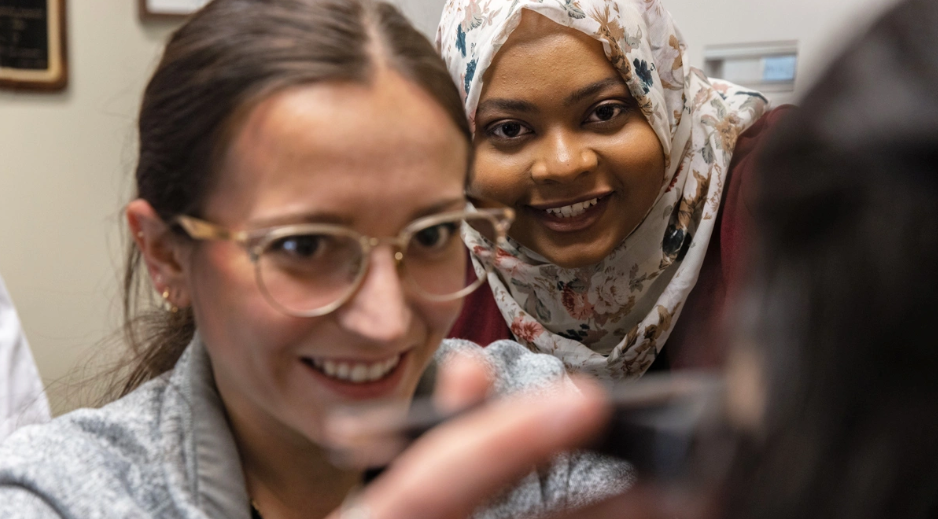 The power of seeing and being seen
The power of seeing and being seen Inspired by her professors and personal immigration experience, this compassionate optometrist provides quality care to disadvantaged community members and teaches her students to treat patients as people first.
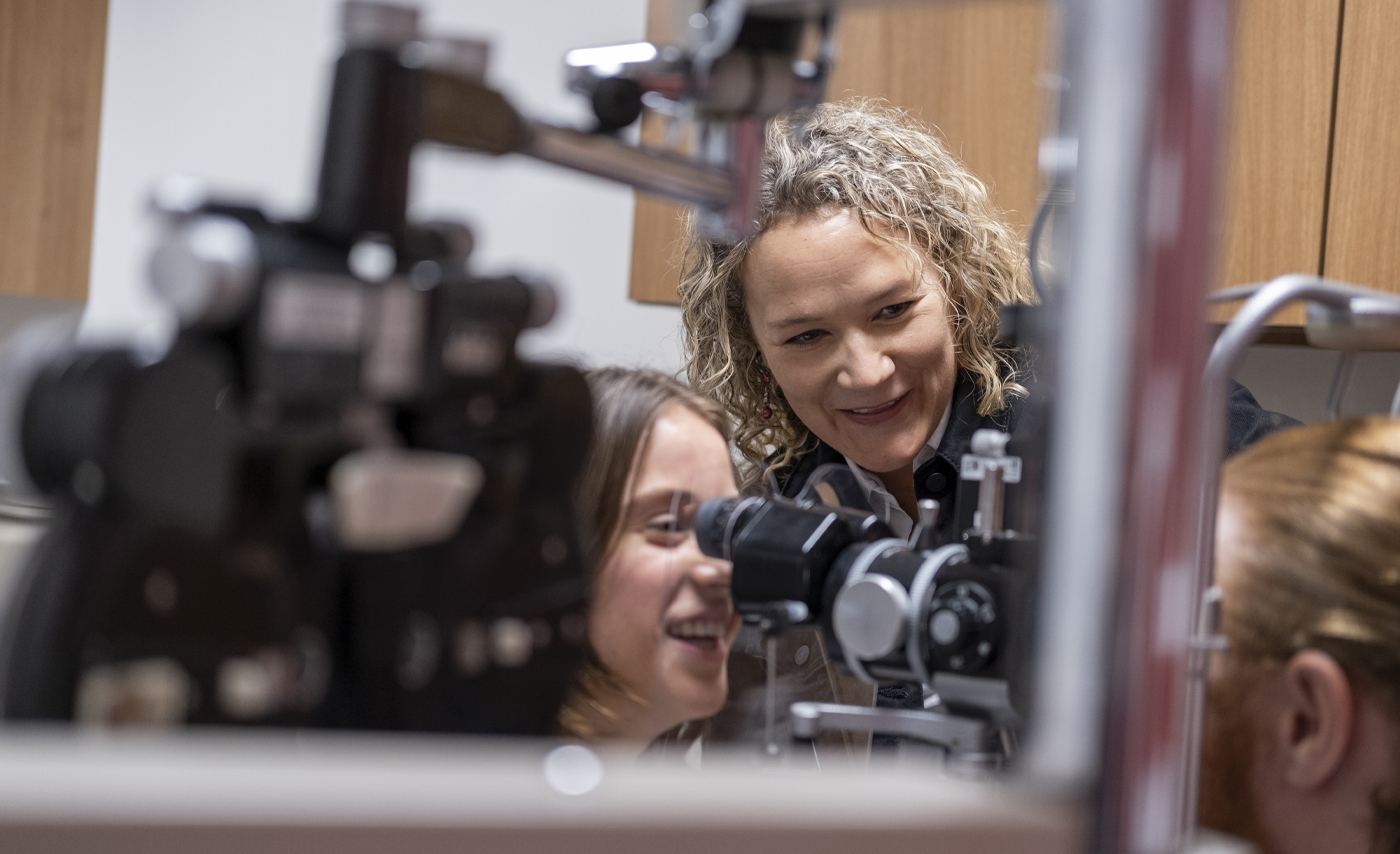 Innovating solutions to vision disorders
Innovating solutions to vision disorders Dr. Melissa Bailey, a former Ohio State Innovator of the Year, is working on two breakthrough products that could make a major difference for people around the world with unaddressed vision needs. “I feel a really strong personal sense that I have talents and I need to use them to make the world a better place,” she says.
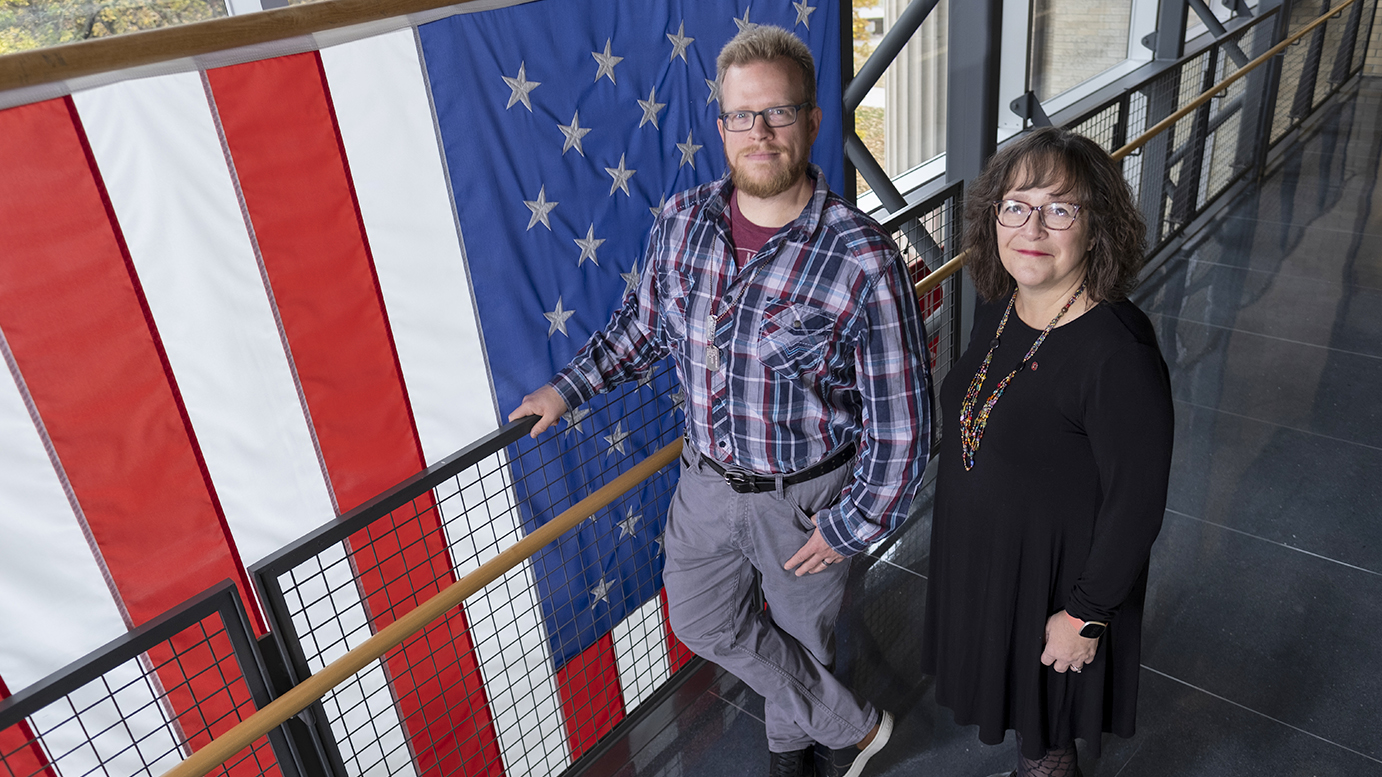 Improving care for veterans with brain injuries
Improving care for veterans with brain injuries David Hibler ’12, ’20 MS has spent two decades supporting his military brothers and sisters. Now, he's working as a liaison between the veterans community and researchers seeking to improve health care services for those who have suffered traumatic brain injuries in the military.
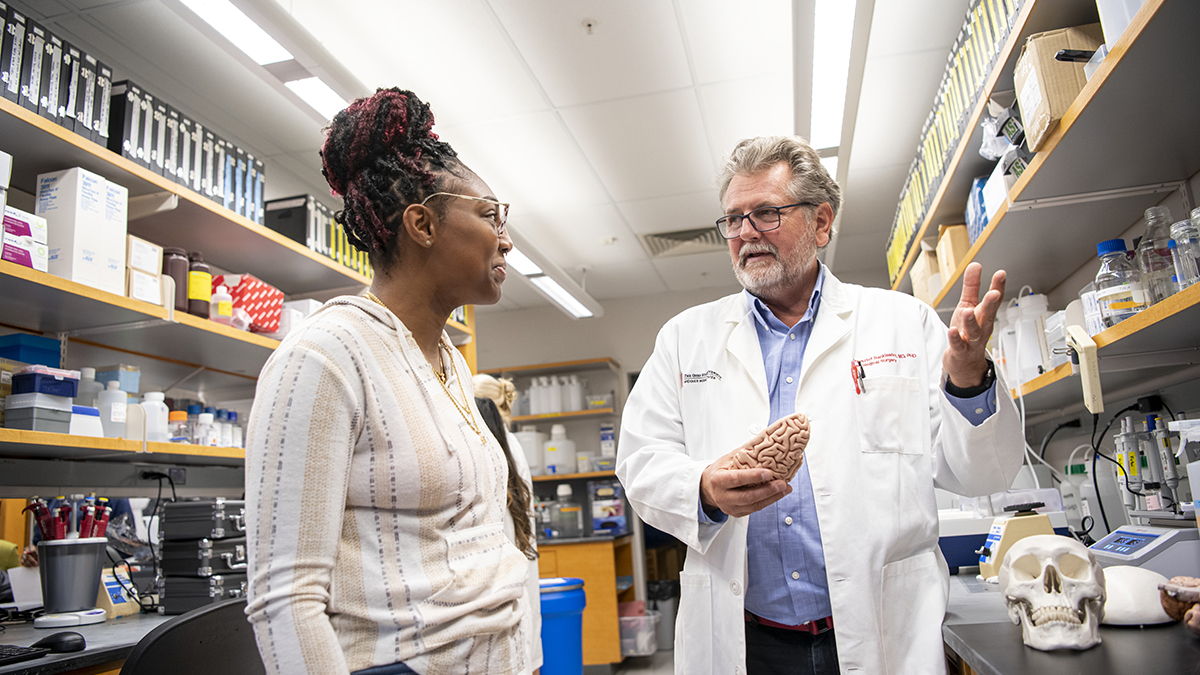 Leveraging gene therapy to change childrens' lives
Leveraging gene therapy to change childrens' lives Parents of children with rare, incurable diseases have long had to deal with dual sources of hopelessness: the helpless feeling that their child was sick, and the compounding dread of knowing that few treatments were likely forthcoming. Dr. Krystof Bankiewicz, who has deep roots in the field of gene therapy, helped develop a therapy that is bringing the ability to walk and talk to children around the world who were born with neither.
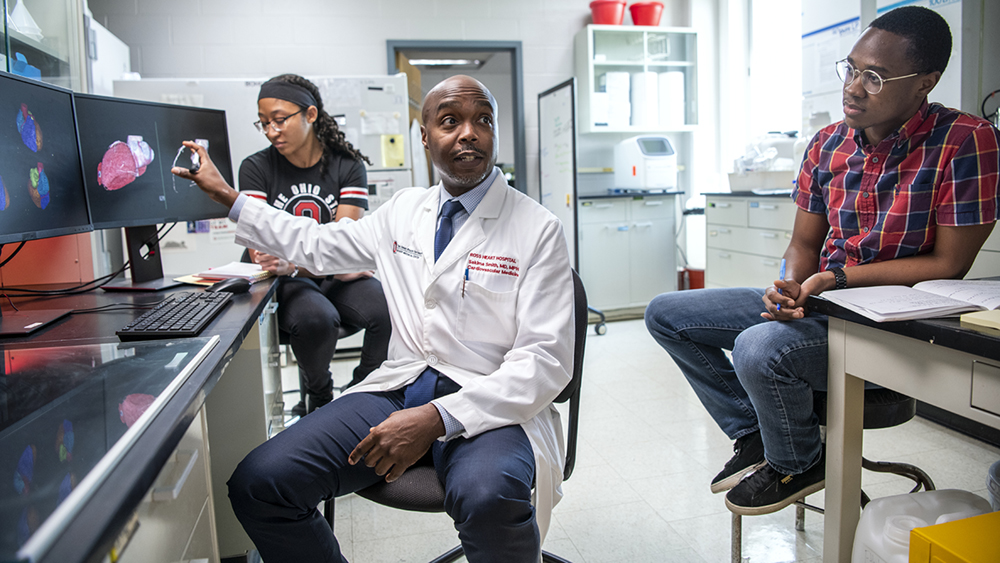 Forging new futures in the field of cardio-oncology
Forging new futures in the field of cardio-oncology Within the past decade, cardiologists and other clinicians began to notice a puzzling trend. A small percentage of their patients who had previously been treated for cancers were developing heart conditions. Since then, Ohio State’s Sakima Smith and others in his research program have been making huge strides in the emerging field of cardio-oncology.
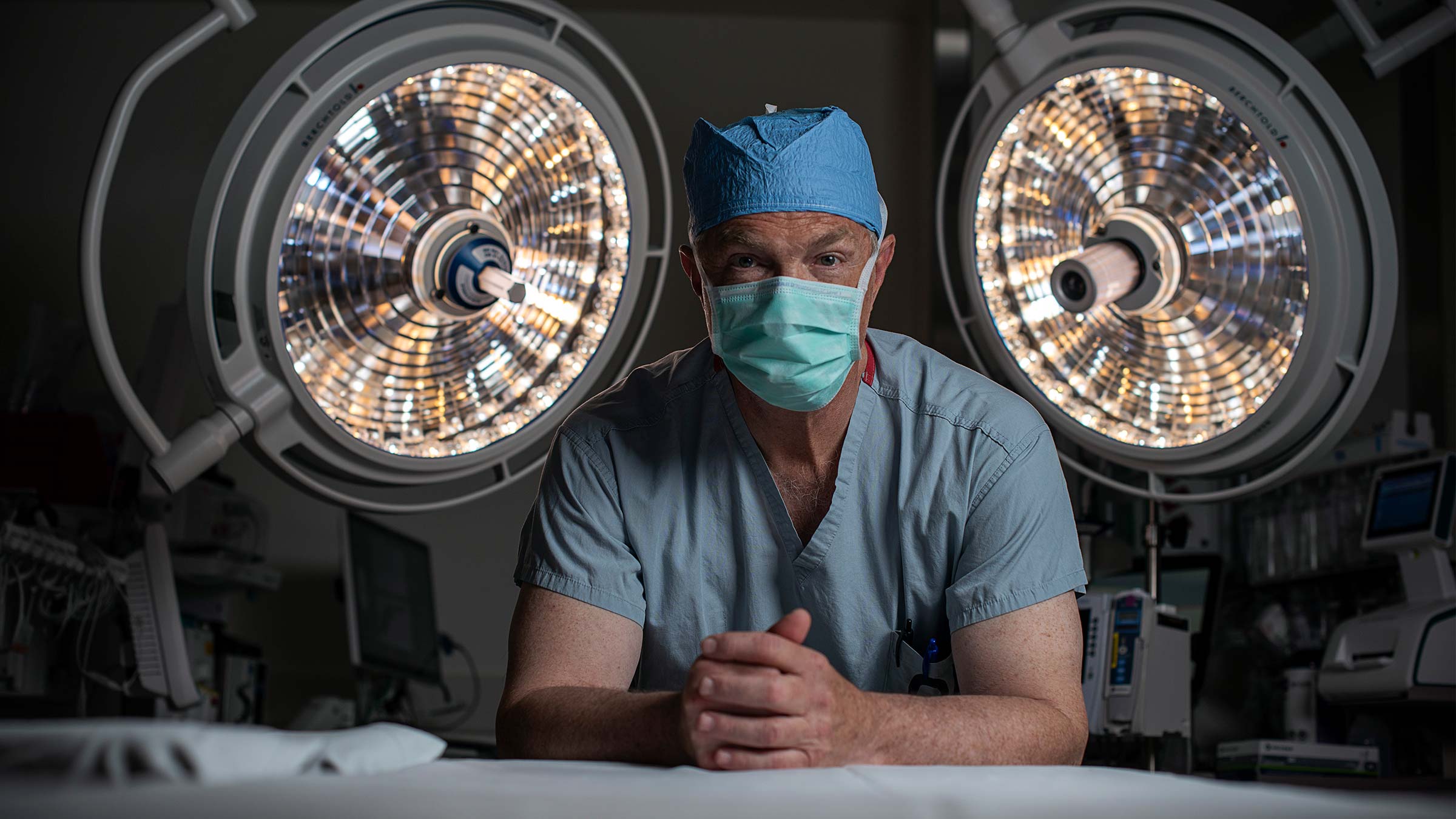 How an Ohio State doctor is changing sports medicine
How an Ohio State doctor is changing sports medicine